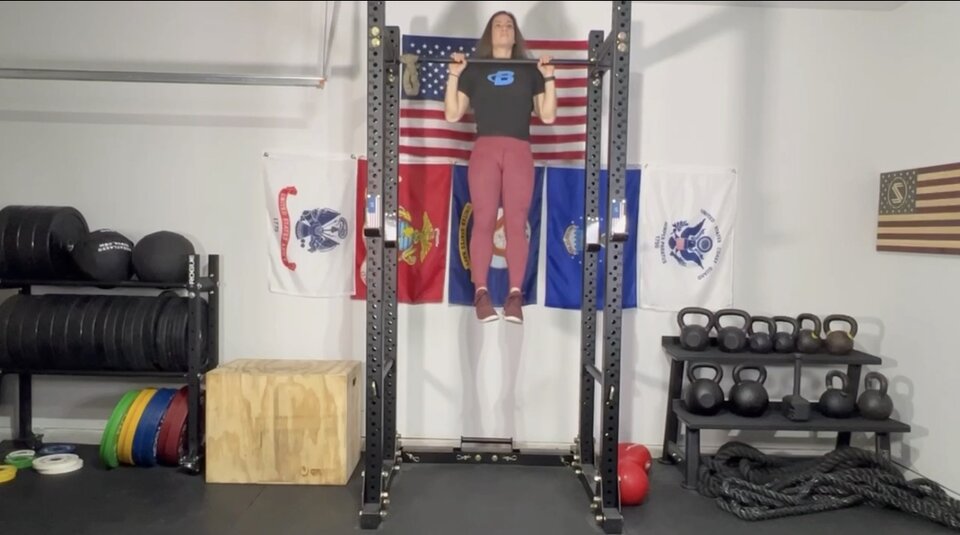Pull-ups are one of the best exercises for your upper body because it works the lats, shoulders, arms, traps, and even activates the abs. It’s also a great way to show off all that hard work you’ve been doing in the gym since it’s a true test of strength. I’m not just talking to the men showing off their strength, but women as well! It’s true. Women tend to have less upper body strength than men, but that makes mastering a pull-up even better! Here’s a progression plan for all of you to get better at doing pull-ups!
Bar Hang
First, you want to get a baseline for your max hang time by doing bar hangs. To do this, grab an overhead bar tightly, using an overhand grip, and hang. You will want to incorporate bar hangs in your program at least 1-2x/week and try to add 10-15 seconds each week.
Here is a breakdown of how long you should hang to begin:
- beginner: 15-30 seconds
- intermediate 30-60 seconds
- advanced: 1-2 minutes
Scapular Pull-Ups
To start a scapular pull-up, you will want to hang from a bar. Without bending the elbows, elevate and depress the scapula (shoulder blades) by pulling the shoulders up toward the ears and then down toward the floor.
Self-Assisted Pull-Ups
To begin a self-assisted pull-up, you will want to sit on the floor with hands gripping a barbell racked in a squat rack or a Smith machine. Then, you will extend your legs out in front of the body, either bent (easier) or straight (more difficult). The goal is to make the legs feel as weightless as possible. Once you’ve done that, you can pull the torso up until the chin clears the bar. Use the minimum amount of lower body assistance as needed.
Banded Pull-Ups
To start a banded pull-up, tie a band around the pull-up bar. Put one foot in and extend the leg straight. Extend the free leg straight to meet the banded leg. Using assistance from the band, you will pull up until the chin clears the bar. As you continue to progress with this and get stronger, the lighter the band/less assistance you will need.
Jumping Pull-Ups
To complete a jumping pull-up, you will begin by placing a box beneath the pull-up bar; high enough so that your hands are on the bar while feet are on the box. Use a boost from your legs while simultaneously pulling with the back and arms to get the chin over the bar. Then, you will control the descent as you come back down. Make sure you use the minimum amount of lower body boost necessary. The stronger you get, the less lower body assistance you’ll need.
Eccentric (Negative) Pull-Ups
To complete eccentric (negative) pullups, you will begin by placing your hand on the pull-up bar and feet on a box. Then, you will jump up until your chin clears the bar, pause for one second to stabilize the torso, and then lower the body down as slowly as possible until the elbows are fully extended. Put feet back on the box, reset, and start again from the top.
Keep Going!
Remember, each person is different, so the amount of time it takes to move on from these to a strict bodyweight pull-up will vary. Just keep going and working on these. Before you know it, you’ll be doing normal pull-ups in no time and look good doing it!
